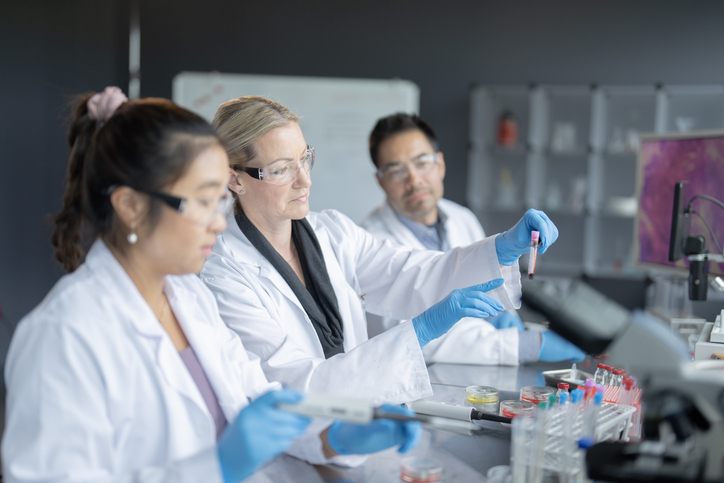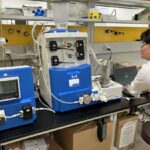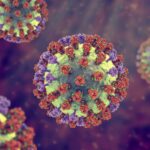Researchers at the Van Andel Institute suggest that the routes cancer cells use to process different nutrients deeply influence cell behavior. They discovered an alternate, or non-canonical, path by which cancer cells convert a ketone called β-hydroxybutyrate (β-OHB) into acetyl-CoA, an essential metabolic building block for fatty acids and cholesterol that supports cell proliferation.
The study “An alternative route for β-hydroxybutyrate metabolism supports cytosolic acetyl-CoA synthesis in cancer cells,” published in Nature Metabolism, could reshape how the relationship between diet and cancer is viewed.
“Cancer cells rely on a complex metabolic network to survive. Understanding the full scope of the nutrient sources that fuel cancer could help us find ways to interrupt this multi-layered defense,” said Evan Lien, PhD, an assistant professor in VAI’s department of metabolism and nutritional programming and the study’s corresponding author.

Lien and colleagues also found that cancer cells can leverage this alternative β-OHB pathway even when glucose, the body’s main source of energy, is plentiful. This suggests that, depending on the circumstances, glucose may not always be the nutrient of choice for cells.
Today’s findings add to an increasingly complex and nuanced understanding of how cells leverage a wide-ranging portfolio of nutrients to sustain themselves. For example, earlier research by VAI scientists suggests that cancer cells aren’t the only ones to leverage ketones—immune cells do too. In 2023, VAI’s Russell Jones, PhD, found that T cells, the soldiers of the immune system, may prefer ketones over glucose as a fuel source. A later study by Jones’s lab found that T cells tasked with fighting cancer also employ backup routes for producing acetyl-CoA. Jones is a co-author of today’s study.
Many people are familiar with ketones through the lens of the ultra-low-carb keto diet. Although this study sheds important light on the metabolism of a specific ketone, it did not explore the effects of the keto diet or other similar dietary changes.
“There are no easy answers when it comes to diet, cancer, and the immune system. That’s why understanding how all the various pieces work together is incredibly important,” noted Lien. “Acetyl-CoA is essential to cell function, and our work shows that cancer cells can use different nutrients and different paths to produce it. These findings give us a fuller picture but there’s still more to uncover.”



